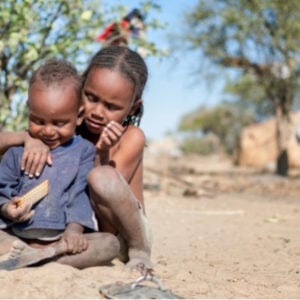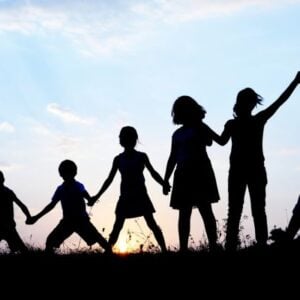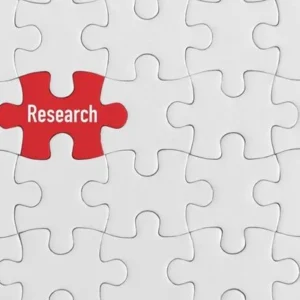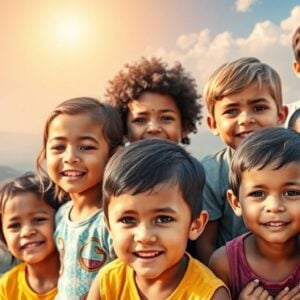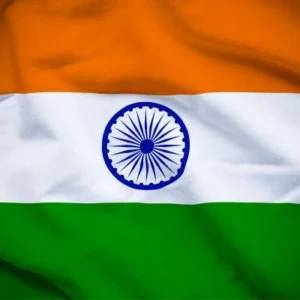Mothers in northern Kenya are facing severe challenges in feeding their children due to a combination of drought, locust infestations, reduced fishing caused by crocodile attacks, and cuts to humanitarian aid, according to Save the Children. In response, the organization’s Emergency Health Unit (EHU) has been operating in Turkana County to screen and treat children for malnutrition while providing other essential medical services.
Between July and August, Save the Children screened 2,780 children in Turkana, finding that 990 of them—approximately one in three—were suffering from acute malnutrition. Many families reported being able to provide only one meal per day, with some relying on wild fruits to survive. The situation is expected to worsen in the coming months due to persistent drought and diminished humanitarian support.
Analysis of Integrated Food Security Phase Classification (IPC) data by Save the Children indicates that by January 2026, the number of people in Kenya facing high levels of acute food insecurity could rise by 16%, reaching over 2.1 million. Among these, more than 179,000 people are projected to experience emergency hunger and very high levels of malnutrition, predominantly in the northern arid counties of Baringo, Mandera, Marsabit, and Turkana. In Turkana County alone, 70% of the population is not receiving enough food, with approximately 87,000 children under five and 36,000 pregnant and breastfeeding women needing treatment for acute malnutrition.
Families describe the crisis in stark terms. Dinah, a mother of five, shared how rising water levels and crocodile attacks have limited fishing, leaving her and her children struggling to survive. Josephine, seven months pregnant, highlighted how drought and reduced support from aid organizations have made daily survival increasingly difficult, forcing families to find alternative means, such as selling charcoal, to purchase food.
Save the Children staff emphasized the severity of the situation. Alice Oyuko-Awuor, Clinical Manager with the EHU, described the malnutrition levels as far exceeding the normal global rate of 15% for acute malnutrition. Families reported feeding their children as little as one cup of plain maize per day, with many going to bed hungry.
Jib Pornpun Rabiltossaporn, Save the Children Country Director for Kenya and Madagascar, noted that locust infestations have destroyed vegetation critical for livestock, while rising water levels in Lake Turkana have submerged fishing zones and increased the risk of crocodile attacks. These combined factors have significantly reduced food availability and income, disproportionately affecting vulnerable children.
In response, Save the Children established 25 health and nutrition outreach sites in July to provide urgent services in the most at-risk areas, working in collaboration with local teams and the Ministry of Health. The organization has been active in Kenya since 1950 and reached nearly 700,000 people, including approximately 455,000 children, in 2024 alone.
